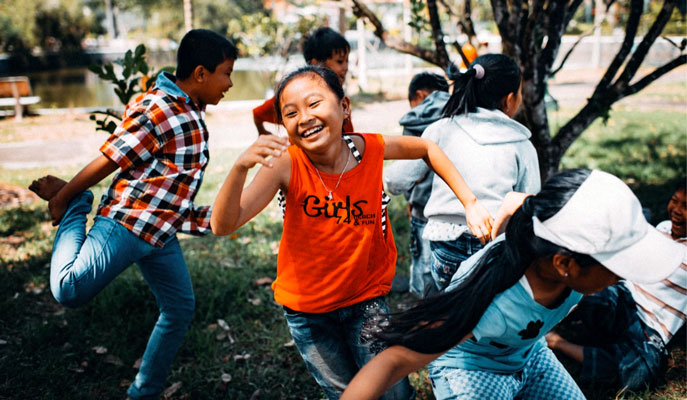Summer vacation often becomes a time when children either stay at home or spend hours on screens, leaving little room for genuine connection and discovery. A well-designed summer camp changes that. It offers an environment where children learn, grow, and create lasting memories outside the familiar boundaries of school and home.
Beyond the excitement of outdoor games, arts, and nature walks, summer camps help shape a child’s emotional intelligence, resilience, creativity, and sense of independence. The lessons gained through these experiences extend far beyond the summer months, helping children carry valuable life skills into every season.
Building Social Skills and Friendships
Children thrive in environments that encourage teamwork, cooperation, and empathy. A quality summer camp provides endless opportunities for young people to connect with peers from diverse backgrounds, forming bonds that often outlast the camp itself.
During group projects, games, and shared cabin experiences, they learn how to communicate respectfully, listen to others, and resolve small conflicts with patience. Many parents find that their children return home with newfound confidence in social settings, able to navigate group dynamics with greater ease. Through their time at fun-filled Walnut Creek camps, children discover that friendship grows not from convenience but from shared experiences and mutual respect. They learn to include others, support teammates, and appreciate differences, creating an understanding that people can work together effectively even when their opinions or personalities differ.
This sense of connection becomes one of the most meaningful rewards of attending a summer camp.
Encouraging Leadership and Teamwork
One of the most rewarding parts of the camp experience is watching children discover their ability to lead and contribute meaningfully to a team. Whether they are captaining a group during a relay race or helping organize a cabin talent show, these moments teach the value of cooperation and mutual respect. Camp settings naturally promote shared responsibility, where every voice has value and every participant plays an important role.
As children rotate between roles – sometimes guiding a group, other times following directions – they gain an understanding of what effective leadership looks like. It is not about authority, but about empathy, communication, and support. When campers see how their actions influence the group’s success, they begin to appreciate the balance between independence and collaboration. This awareness strengthens their ability to work within teams both in school and later in life, preparing them to take initiative while respecting others’ ideas.
Building Confidence Through New Experiences
Summer camps offer a range of activities that challenge children to step beyond their comfort zones. Whether it’s climbing a rock wall, performing in a play, or learning to paddle a canoe, each accomplishment builds a foundation of self-belief. When children see that they can try something new and succeed, their confidence expands naturally.
The supportive atmosphere of camp allows mistakes to be viewed as learning opportunities rather than failures. Encouragement from counselors and peers helps children keep trying until they reach their goals. Over time, these experiences form a powerful sense of achievement. The confidence gained at camp often carries into the classroom and other social environments, helping children participate more actively and take on new challenges with a positive mindset.
Encouraging Physical Activity and Outdoor Exploration

Modern life can limit the time children spend outdoors. Camps give them the chance to rediscover the simple joy of running, swimming, and exploring nature. The outdoor setting provides not only physical benefits but also a mental refresh that screens cannot replicate. The natural environment sparks curiosity and creativity, making each day feel like an adventure.
Activities such as hiking, archery, or team sports teach coordination and perseverance. Children experience the thrill of movement and learn to appreciate their bodies’ capabilities. Exercising at camp is not about competition but about participation and fun. The combination of exercise, fresh air, and sunshine boosts energy and mood, leaving children healthier and happier. By the end of the summer, they often find that being active feels less like an obligation and more like a rewarding part of everyday life.
Promoting Creativity and Problem-Solving
Art projects, music sessions, science challenges, and theater performances give children the freedom to experiment and express themselves. Camps encourage imagination without pressure or judgment. When a child paints a mural, builds a small robot, or writes a story with friends, they learn that creativity is not limited to talent; it’s about curiosity and expression.
Camps are also rich in problem-solving experiences. From building a shelter during an outdoor challenge to finding a way to make a group project work, children are encouraged to think critically. They learn that different perspectives can lead to stronger solutions. These hands-on lessons in creativity and problem-solving cultivate persistence and adaptability, qualities that benefit them throughout their education and beyond.
Strengthening Emotional Growth and Resilience
Life at camp often presents small hurdles – feeling homesick, losing a game, or facing an unfamiliar activity. Each of these moments teaches emotional awareness and coping skills. Counselors provide gentle guidance, helping children recognize their feelings and manage them effectively. Through these experiences, children learn that challenges can be overcome with patience and effort.
Camps emphasize encouragement over competition, giving children a safe space to practice resilience. They come to see that disappointment or failure does not define them. Instead, these moments become part of their growth. This emotional strength is one of the most valuable outcomes of camp life. When they return home, children often show greater empathy, patience, and a balanced approach to handling everyday stresses.
A quality summer camp experience offers much more than entertainment during school break. It creates an environment where children learn valuable life skills through play, collaboration, and exploration. The friendships they form, the confidence they build, and the independence they gain contribute to their development as capable and compassionate individuals.
Whether it’s through making friends at fun-filled camps, discovering new hobbies, or simply learning to enjoy time outdoors, the lessons learned extend far beyond summer. Parents who invest in a well-structured camp program give their children an opportunity to grow in ways that traditional classrooms often cannot provide. By the end of the season, campers return home with a stronger sense of self, deeper emotional maturity, and memories that shape their growth for years to come.









